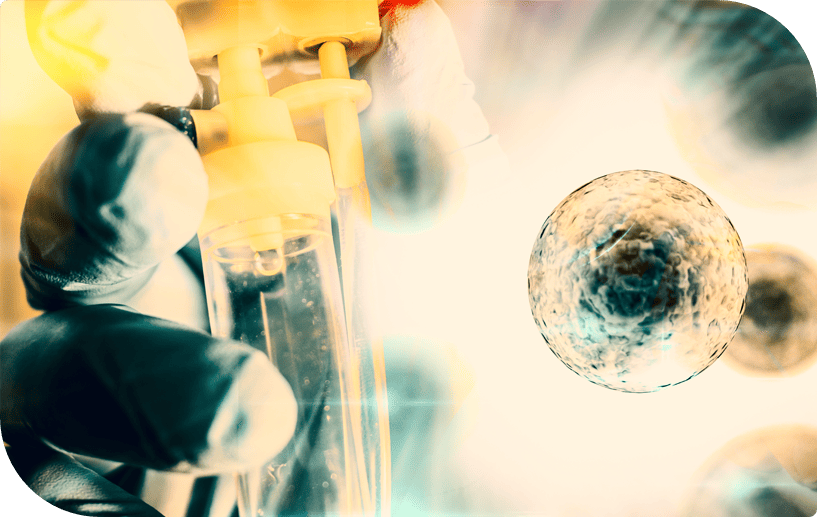
Our Story

Opus is the first and only clinic in the UK that offers a regulated and licenced expanded mesenchymal stem cell treatment. Beyond this, we are one of only five establishments across the globe that grow these cells in-house.
Regenerative medicine was first used by our doctors and specialists to treat career-ending injuries in football players. Since 2015, countless incredible results have been achieved using these therapies, enabling players to return to the game quicker than ever before. This sparked the idea that these techniques could be used beyond the football pitch for a wider range of patient. We wanted to ensure that not only was this therapy accessible to all our patients but also that we retained the bespoke and specialised level of care that has been provided from the start. From this, Opus Biological was born.
Revolutionising Regenerative Medicine
Mesenchymal stem cells (MSCs) are multipotent adult stem cells, which are capable of self-renewal and differentiation into multiple different cell types. MSCs are sourced primarily from the bone marrow and from cells of connective tissue and stroma, which surround organs. MSCs can be easily isolated and readily grown when needed. MSCs have been extensively studied over the past 30 years for their easy accessibility, long shelf-life, self-renewing capacities, and their broad range of clinical potential for use in tissue engineering. At Opus, we are proud to say that we are one of five clinics globally that are able to culture these cells in-house.
The future of mesenchymal stem cells
The therapeutic potential of MSCs is promising due to their natural ability to move towards damaged tissue and secrete key molecules. These, in turn, encourage cell repair and promote both immunosuppressive and anti-inflammatory effects. Hence, MSCs are considered a candidate for the treatment of autoimmune, inflammatory, and degenerative diseases. Multiple studies have also investigated advances for MSC use in the treatment of cancer.

As MSCs can differentiate into neuronal cells, studies have moved towards treating conditions including amyotrophic lateral sclerosis (motor neurone degeneration), Parkinson’s disease (loss of dopaminergic neurones) and Alzheimer disease, which causes memory loss and intellectual disabilities. Although not been widely researched in the treatment of neurodegenerative diseases, MSCs are proposed as an ideal candidate to regenerate injured brain regions, paracrine neuroprotective factors, and a patient’s ability to regulate the function of their immune cells.
MSCs are also a great candidate for autoimmune disorders as they can regulate immune responses and differentiate into various cell types. Potential diseases which could be treated using MSCs include rheumatoid arthritis (RA), type 1 diabetes and cardiovascular diseases. In preclinical models of RA, these cells have elevated the inflammatory responses in mice and overall were useful in decreasing disease progression and promoting recovery. The applications of MSCs in type 1 diabetes hav also been widely investigated in preclinical models, with these stem cells differentiating into insulin-producing cells, decreasing glucose levels in mice. Lastly, cardiac cell transplantation using MSCs has been explored for the potential repair of heart tissue. In associated studies, MSCs transplanted into myocardial infarction models were found to be effective in improving heart contractility.
Overall, MSCs are a strong contender in the future of clinical medicine, which has been demonstrated in many preclinical studies of a wide variety of diseases and future cell replacement therapies and have overall shown only mild adverse effects.
Further Treatments
- Platelet rich plasma treatment, a novel approach to therapy that uses a patient’s own blood to encourage the healing of injured joints, muscles, tendons, and ligaments.
- Performance psychology, a subdivision of psychology that focuses on optimal human performance and its underlying psychological factors.
- Osteopathy, an approach that incorporates various techniques to treat the cause of your pain rather than the symptoms.
- Sports medicine.
- Private GP services with our highly experienced and UK accredited general practitioners, providing our patients with an unrivalled comprehensive medical service.
- Health screening services to keep your general health in check regardless of your age or fitness.
- Same day access to testing for both the COVID-19 virus and COVID-19 antibodies.
